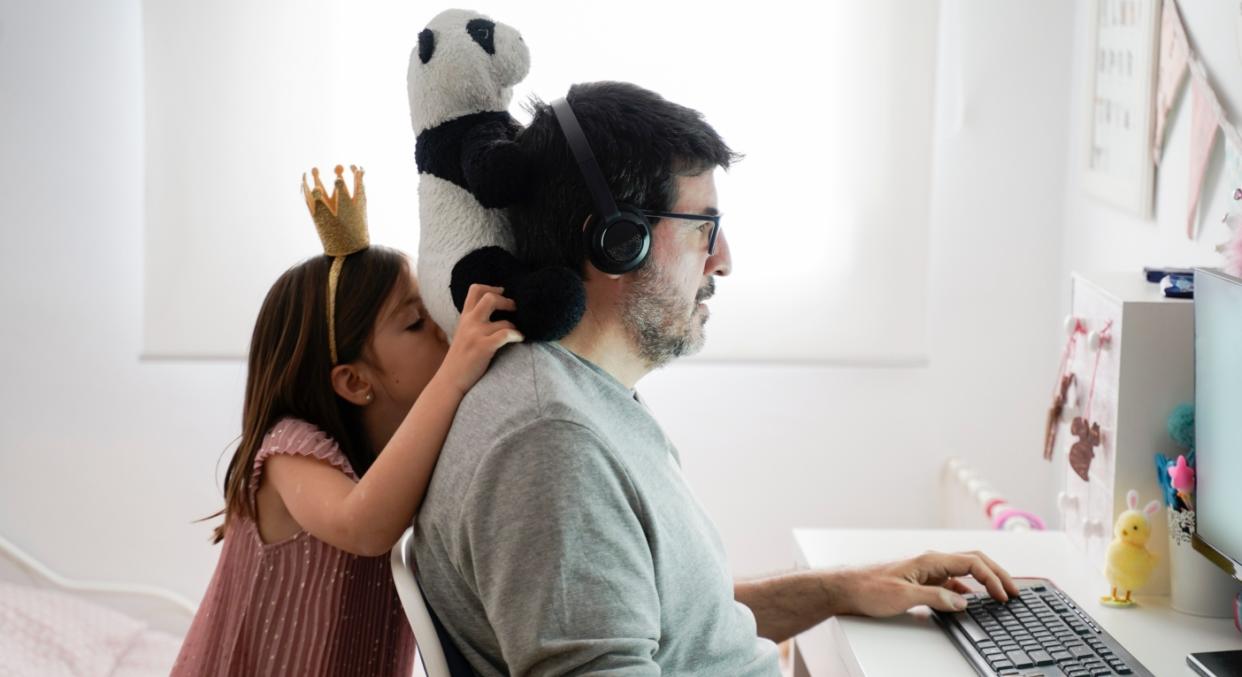How to cope with going back into the office: Reclaim your commute and dodge the politics

The email has finally arrived. You’ve been asked to go back into the office - or to start thinking about it at least - but you’re feeling less-than ecstatic about it.
When we were first told to work from home as the pandemic took hold in Britain in March last year, it felt a bit like a working holiday.
Our alarms were set an hour later and the time we usually spent commuting was used for exercising or preparing dinners from scratch.
For those who had been advocating for flexible working, it finally felt like a step in the right direction.
Read more: How to improve your sleep schedule as we return to early morning commutes
Which is why it’s not surprising that a new study has found that 68% of Brits think businesses should give workers the choice to work from home going forward, with 76% saying they do not wish to return to the office full time.
Having the option to work from home could improve the nation’s mental health, according to 41% of respondents to the survey of 2,000 people by intranet software company Oak Engage. While a third (33%) said if they had to go back to the office permanently, they would look for other roles.
If you are feeling wary about heading back to the office, and your business has asked you to come back in either part or full time, it can be an anxiety-inducing situation.

“We have lived through a year of lockdown with restricted social interaction. This means social anxiety is quite likely to be a significant issue for people who may never have experienced anxiety before now, and it may be an even harder space to navigate for those already prone to anxiety,” Counselling Directory member Kirsty Taylor tells Yahoo UK.
“Those ‘norms’ we develop through daily communication and social interaction have not been exercised in the same way for a long time.
"Many people will feel anxious about crowds of people and being in close proximity to others after lockdown. We may find it harder to look someone in the eye, to adjust to the norms of the office again after such a long absence.”
So do we really have to physically return to our place of work? In a legal sense, yes.
Amanda Hamilton, chief executive of the National Association of Licensed Paralegals says your employer has a legal right to ask you to come back into the office.
“The answer depends, in a small way, on whether you have an employment contract which states where your place of work will be,” Hamilton explains.
“Of course, there is always room to negotiate if your employer is approachable enough. Unprecedented times demand unprecedented negotiations.”
Read more: Why ‘workations’ are the boost the travel industry needs
Hamilton says, in this circumstance, negotiation is the best way forward - especially while government guidelines are still asking people to work from home where possible.
A return to office also means a return of long commutes, office politics and switching up your working routine yet again.
“There may well be a rise in office politics as we return to the office," says Taylor. "There may be judgements made on who opts to stay at home, and who returns to the office.
"People may take time to adjust to the social etiquette of the workplace, and this can cause tension. The number one rule in office politics is to stay away from it.
“Ensure you have people who you connect with and can go to lunch with to avoid getting involved in difficult lunchtime chat.
"It’s important to try not to add fuel to the fire by retaliating when someone has an unfavourable opinion or any undermining tactics take place.”
Watch:5 top tips to boost your mental health
As for your commute, Hannah Salton, career coach and consultant advises you can utilise this time to listen to podcasts and audiobooks, make time for yourself that you may have neglected while working from home.
If you are feeling anxious, it may be best to speak to your boss about flexible working going forward.
“Explaining how you feel and having some time and space to explore any worries might be very helpful,” Taylor says.
“If it feels very overwhelming to think about returning to the office, then you could perhaps negotiate with your boss around a staggered return, with some working from home days.
"You could look at adjusting your starting or finishing time if that would help with anxiety around travelling at busy times.”
Read more: Are you suffering from pandemic posture? Here's what to do about it
For those who are required to go back in, it’s good to remember that there are benefits from working in an office too.
“Being around other people in an office environment can help you both professionally and personally,” Salton says.
“Lots can be learnt from working in close proximity to our colleagues that can help us to do our job better, and collaborating on projects is often easier.
"Many people also love the social element to working in an office. Building friendships at work can help employees feel more engaged and enjoy being in the office more.
"Many people also believe that having a separate work environment can help with work-life balance boundaries, and we’re better able to switch off when we finish for the day.”
It may take some time to readjust, but this is the perfect opportunity to speak to your company and figure out a routine that works for you.



